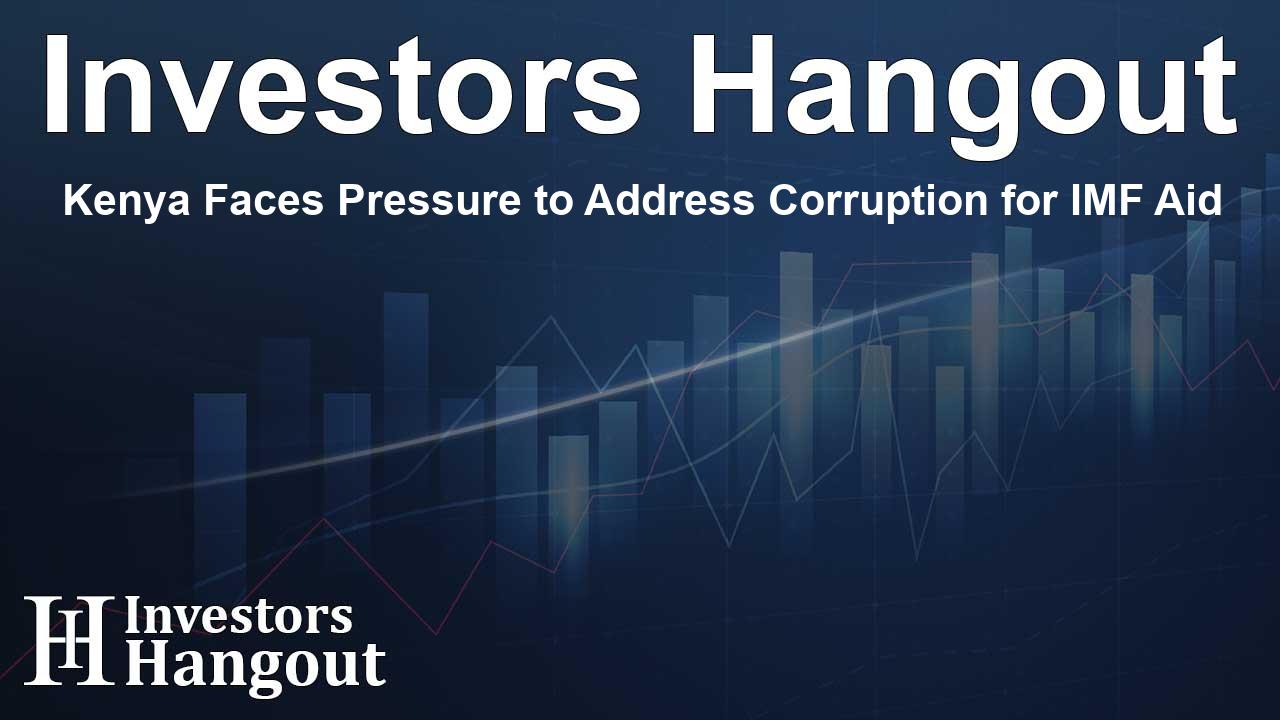Kenya Faces Pressure to Address Corruption for IMF Aid

Pressure from Western Nations on Kenya's Governance Issues
Recently, significant stakeholders within the International Monetary Fund (IMF) have been advising Kenya to formally request an assessment focused on corruption and governance. This move aims to facilitate access to essential financial support that has been hindered by the withdrawal of proposed tax hikes. According to diplomatic sources, this financial aid is critical for the country's economic stability.
The Stalled Financial Aid
Kenya had anticipated a disbursement of approximately $600 million under an IMF agreement scheduled to expire in the near future. However, the government faced a setback in June when it rescinded proposed tax increases amounting to $2.7 billion, a decision made in response to widespread public protests.
Public Outcry and Governance Challenges
The protests, which unfortunately resulted in the deaths of over 50 individuals, highlighted pressing issues of corruption and mismanagement within the government. Many young Kenyans participating in the demonstrations expressed their frustrations, alleging that their hard-earned tax contributions were being misallocated to finance the extravagant lifestyles of politicians.
The Role of Governance Diagnostics
In light of these circumstances, Western nations are advocating for a comprehensive governance diagnostic—essentially an evaluation by the IMF addressing the capabilities and vulnerabilities related to governance and corruption in Kenya. This type of assessment must be formally requested by the Kenyan government, which would pave the way for ongoing discussions regarding future financial support from the IMF.
Kenya's Response and Future Strategies
As the situation unfolds, the Kenyan finance ministry has yet to release a formal statement regarding these developments. The IMF, based in Washington, also refrained from immediate commentary, maintaining a focus on the evolving situation. Historically, the IMF has conducted governance diagnostics for various nations, completing such assessments for 14 countries since 2014, which includes nations like Ukraine, Cameroon, and Sri Lanka.
Renewed Focus on Revenue Generation
In response to the challenges of raising funds following the cancellation of the tax increases, Kenyan authorities are pivoting towards new revenue-generating strategies. Finance Minister John Mbadi previously indicated the necessity of reinstating certain components from the canceled legislation to ensure fiscal balance.
Engaging the Public in Legislative Solutions
Moreover, to foster inclusive governance, last month Minister Mbadi announced that he would solicit public input on potential new legislation aimed at enhancing revenue generation. This approach signals an acknowledgment of the public's role and the importance of restoring trust in the government's fiscal policies.
Looking ahead, diplomatic sources emphasize that the Kenyan government will need to devise and present a credible strategy to address its fiscal deficit. Only then will the IMF entertain the possibility of possible disbursements, underlining the importance of both governance and economic stability in securing financial support.
Frequently Asked Questions
What is the IMF's role in Kenya's economic situation?
The IMF plays a crucial role in providing financial support and guidance to countries like Kenya, particularly in addressing governance and corruption issues.
Why did Kenya rescind tax increases?
The withdrawal of tax increases was a direct response to widespread protests against the government's proposed financial measures, which were perceived as unfair.
What is a governance diagnostic?
A governance diagnostic is an assessment conducted by the IMF to evaluate a country's vulnerabilities and challenges in governance and corruption.
How many countries have undergone IMF governance diagnostics?
Since 2014, the IMF has performed governance diagnostics for 14 countries, including examples like Ukraine and Sri Lanka.
What steps is Kenya taking to improve its fiscal situation?
Kenya is exploring new revenue-raising measures and engaging the public for suggestions on legislation to enhance financial stability.
About Investors Hangout
Investors Hangout is a leading online stock forum for financial discussion and learning, offering a wide range of free tools and resources. It draws in traders of all levels, who exchange market knowledge, investigate trading tactics, and keep an eye on industry developments in real time. Featuring financial articles, stock message boards, quotes, charts, company profiles, and live news updates. Through cooperative learning and a wealth of informational resources, it helps users from novices creating their first portfolios to experts honing their techniques. Join Investors Hangout today: https://investorshangout.com/
Disclaimer: The content of this article is solely for general informational purposes only; it does not represent legal, financial, or investment advice. Investors Hangout does not offer financial advice; the author is not a licensed financial advisor. Consult a qualified advisor before making any financial or investment decisions based on this article. The author's interpretation of publicly available data shapes the opinions presented here; as a result, they should not be taken as advice to purchase, sell, or hold any securities mentioned or any other investments. The author does not guarantee the accuracy, completeness, or timeliness of any material, providing it "as is." Information and market conditions may change; past performance is not indicative of future outcomes. If any of the material offered here is inaccurate, please contact us for corrections.